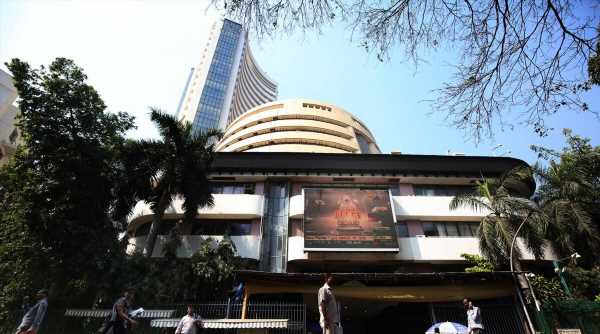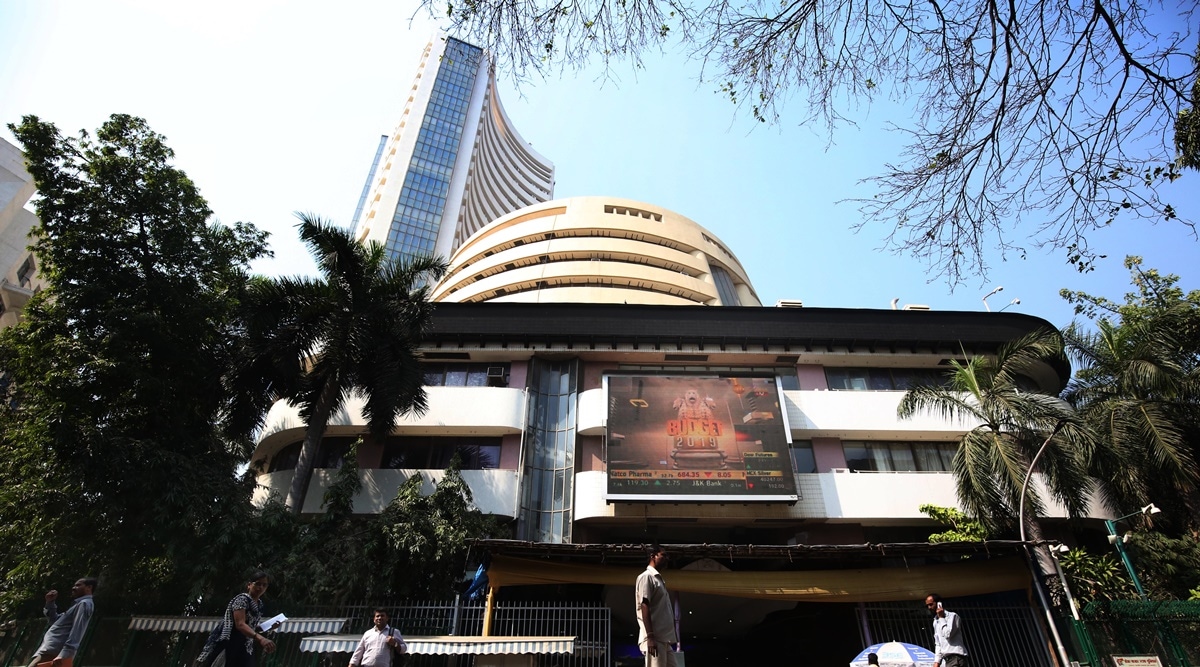The S&P BSE Sensex fell 586.66 points (1.10 per cent) to end at 52,553.40, while the Nifty 50 slipped 171.00 points (1.07 per cent) to settle at 15,752.40.
The benchmark equity indices on the BSE and National Stock Exchange (NSE) ended over 1 per cent lower on Monday weighed by banking and financial stocks and tracking weakness in the global market.
The S&P BSE Sensex fell 586.66 points (1.10 per cent) to end at 52,553.40, while the Nifty 50 slipped 171.00 points (1.07 per cent) to settle at 15,752.40.
Both the indices had opened around 1 per cent lower earlier in the day but recouped some losses in the late morning deals. However, in the afternoon session of trade, they again lost moment and slipped before ending with 1 per cent losses.
HDFC twins comprising of HDFC Bank and Housing Development Finance Corporation (HDFC) were the biggest contributor to Sensex’s fall on Monday. They were followed by IndusInd Bank, Axis Bank, Maruti Suzuki India and Bajaj Finance. On the other hand, NTPC, Nestle India and Dr Reddy’s Laboratories ended with gains.
In the previous session, Sensex had ended 18.79 points (0.04 per cent) lower at 53,140.06, while the Nifty slipped 0.80 points (0.01 per cent) to 15,923.40.
Among the sectoral indices on NSE, the key Nifty Bank index fell 1.88 per cent dragged by HDFC Bank, IndusInd Bank, IDFC First Bank and RBL Bank. The Nifty Financial Services index too crashed 1.94 per cent weighed by Shriram Transport Finance Company, HDFC Asset Management Company, Mahindra & Mahindra Financial Services and HDFC Life Insurance Company.
In the broader market, the S&P BSE MidCap index ended at 22,995.84, down 134.57 points (0.58 per cent) while the S&P BSE SmallCap settled at 26,381.08, down 81.23 points (0.31 per cent). The volatility index or India VIX on NSE rose 8.32 per cent to 12.6800.
“Shadowing global sell-off, Indian indices slipped succumbing to world inflation woes, FOMC meeting next week and rising covid cases. Banks led the domestic downtrend as initial quarterly results pointed to cautious asset quality due to the impact of the second wave. Slackening economic growth in the US led to reports of likely downgrade in growth forecast in current year triggering global sell-off,” said Vinod Nair, Head of Research at Geojit Financial Services.
Global market
Risk-aversion ruled on Monday as a surge in worldwide coronavirus cases pushed down bond yields and left stocks facing their longest losing streak since the pandemic first hit global markets 18 months ago.
The STOXX 600 slid 1.4 per cent and London’s FTSE fell 1.3 per cent as England scrapped COVID-19 restrictions even though over 48,000 new cases were reported in Britain on Sunday. Britain’s health minister has also tested positive for the virus.
Asia had seen Japan’s Nikkei and Hong Kong’s Hang Seng drop 1.3 per cent overnight too.
-global market input from Reuters
Source: Read Full Article


